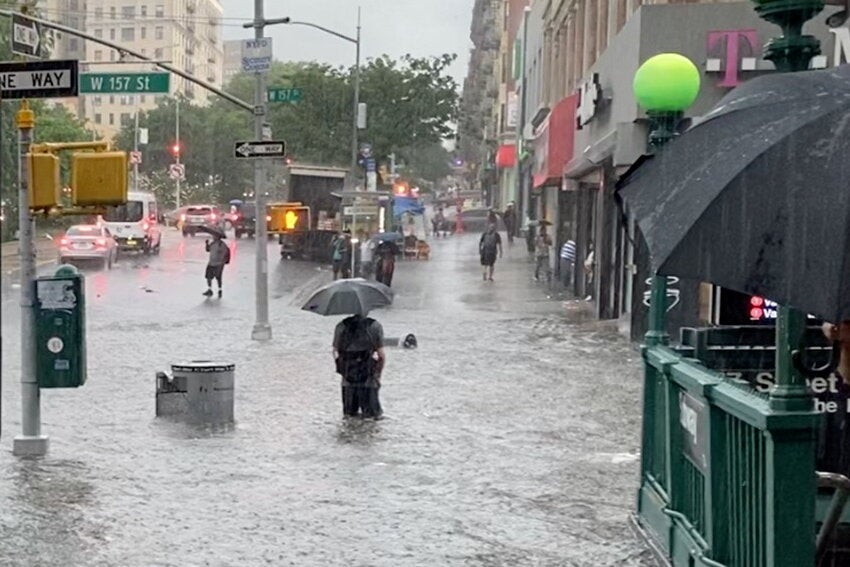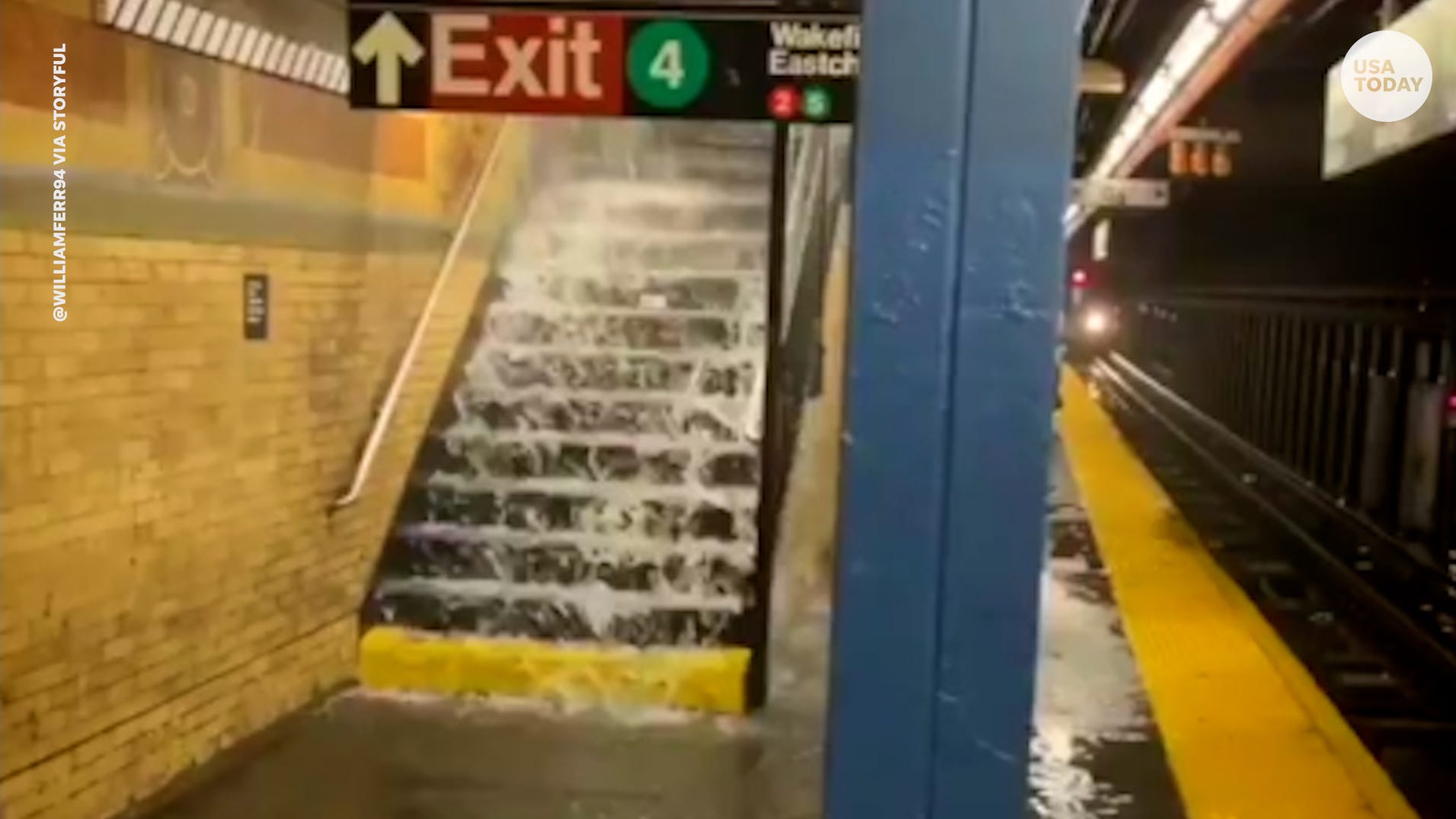Sandra Biskupovic, PhD student at the University of Waterloo, is researching the complex topic of critical infrastructure resilience in the context of climate change. Sandra is interested in identifying and establishing effective multi-level governance arrangements which would effectively reduce the societal impacts which occur when critical infrastructure is disrupted because of extreme weather and natural disasters. Communities rely on critical infrastructure (CI) to ensure the provision of critical public services, economic growth and social development and when they are impacted by major or minor events, they can cause extreme harm to the well-being of society. Recent examples include the 2021 ice storm in Texas, which overwhelmed the state’s electricity infrastructure, and Hurricane Elsa, which impacted New York City’s transportation infrastructure.


Tropical storm Elsa bombards New York City, flooding major streets and subways (Photo Credit: New York Times, 2021).
Sandra’s research, which established the current conceptualization of the topic of critical infrastructure resilience and the extant research findings, drew several interesting conclusions. Some notable findings include the over-emphasis on technical solutions in academic literature to enhance the resilience of critical infrastructure. Sandra highlights those technical solutions are effective at anticipating risk and protecting physical structures when a disaster or disruption occurs but the over-emphasis on technical solutions have dominated political agendas and shifted resources away from non-technical solutions.
Critical infrastructures constitute the backbone of the functioning of our modern and interconnected economies.
There is limited research in the literature that adequately explores the efficacy of non-technical solutions for improving critical infrastructure resilience such as the development and implementation of stricter regulation, including inspections, performance assessments, mandatory business continuity planning and fines, or other penalties, for non-compliance with resilience requirements. In addition, Sandra’s research strongly emphasizes the need for research exploring critical infrastructure resilience to shift scholarly focus from understanding how to reduce the damage and impacts to physical structures (i.e. technical resilience) to understanding how to reduce the social and economic impacts (i.e. societal resilience).
This research is increasingly more relevant as climate change progresses and is anticipated to disrupt society under all emission-reduction scenarios. Understanding what governance arrangements are capable of effectively managing critical infrastructure and improving resilience will be imperative for effective climate change adaptation.